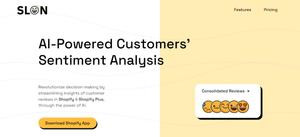Unlocking the Potential of Artificial Intelligence (AI) in Retail: Evolution to Future
Sector: AI + Data
Author: Nisarg Mehta
Date Published: 03/29/2024

Contents
The world is talking about AI, as we see breakthrough innovations happening across the industries. AI has become a tool that reshapes retail operations and customer engagement. So far, the retail sector has seen that by pacing up the decision-making processes and streamlining operations with precision, AI personalizes the customers’ shopping experience. This marks progress and a significant leap into what could define future retail dynamics.
Global AI in retail market size, according to Precedence Research, is projected to reach USD 45.74 billion by 2032. The compound annual growth rate from 2023 through 2032 is anticipated at a robust 18.45%.

Indeed, such statistics merely hint at AI’s vast potential: they represent just the tip of an iceberg set to reshape retail. And, we’re about to experience the whole iceberg here. So without further ado, let’s get started.
Technological advancements notably influence the rapid evolution of the retail sector; however, it is through integrating Artificial Intelligence (AI) that a promising era begins to redefine its future. This revolution extends beyond automating routine tasks: it harnesses AI power to analyze data–comprehend consumer behavior–and make predictive decisions previously exceeding human capacity.
Evolution of AI in Retail
Earlier, retail technology included machine learning algorithms (ML) that would learn from vast data sets and generate business insights. These ML algorithms are at the heart of AI in the retail sector. And this shift from ML to AI has brought new areas of innovation for retailers.
Retailers, through this shift, not only anticipate market trends but also gain a deep understanding of customer preferences; it empowers them to provide personalized shopping experiences that precisely cater to individual needs. AI technologies within retail demonstrate diverse applications: Natural Language Processing enhances customer service chatbots; Computer Vision aids inventory management – and Robotics facilitates logistics and delivery.
Use Cases of AI in Retail
Let’s explore AI’s role in the retail industry by the area of impact – starting with customer experiences.
A. Enhancing Customer Experiences with AI
The hyper-digital age drives customer expectations to unprecedented heights; the retail industry can harness AI technologies to surpass these demands.
By offering an unparalleled opportunity to enhance the customer journey, AI technologies can provide personalized, engaging, and seamless experiences across numerous touchpoints.
Personalized Shopping Experiences
AI in retail is a process that includes customer data such as past purchases, browsing behaviors, and preferences to empower retailers to provide personalized product recommendations as well as run targeted marketing campaigns.
Such a personal touch, powered by AI’s effectiveness and efficiency, not only enhances the shopping experience but also significantly boosts sales.
Virtual Fitting Rooms
Artificial Intelligence (AI) powers Augmented Reality (AR) and Virtual Reality (VR) technologies, which revolutionize the customer shopping experience. Customers can now test products in a virtual environment before making their purchase. This innovative strategy directly confronts a significant challenge inherent to e-commerce— the lack of physical product trial or testing possibilities.
Offering realistic simulations through virtual fitting rooms; not only minimizes return rates but also diminishes uncertainty linked with internet purchases. Improving customer satisfaction not only reduces the logistical and financial burden of returns on retailers; it also decreases them directly.
Streamlining Customer Service with Chatbots and Virtual Assistants
Generative AI-powered chatbots and virtual assistants revolutionize customer service in the retail industry: by offering instant responses to customer inquiries, these AI tools boost engagement and support.
Retailers who leverage this technology report an improvement–in particular–in their scores for customer satisfaction; thus, they showcase how efficiently and effectively AI can handle interactions with customers. Furthermore, chatbots and virtual assistants operate around the clock: this guarantees that customers receive aid at any given moment–a provision that heightens the overall customer experience.
B. Streamlining Operations with AI
AI represents a notable leap toward efficiency, accuracy, and cost reduction; it is not merely an operational tool. Indeed–through automating complex processes–AI demonstrates itself as a strategic asset: providing profound insights into diverse aspects of the retail chain. Consider these use cases:
Predictive Analytics for Stocking and Restocking
Predictive analytics enable AI-driven inventory systems to forecast product demand with accuracy: this capability facilitates the maintenance of optimal stock levels. The algorithms embedded in these systems—meticulously analyzing historical sales data, seasonal trends, and social media signals—even predict future sales with remarkable precision.
An AI system’s predictive capability offers significant assistance to retailers: it aids in averting stockouts and overstocking, thereby diminishing the costs linked with surplus inventory and missed sales.
Dynamic Pricing
A plethora of factors—demand, competition, and market conditions: are the variables to which AI equips retailers with dynamic price-adjustment capabilities. This strategy guarantees not only competitive viability but also profit maximization; for instance–the approaching expiry dates for products automatically trigger AI systems into action. They swiftly reduce prices—curbing waste and recovering costs efficiently in the process.
Retailers, during peak shopping periods, can dynamically adjust prices to mirror heightened demand; such strategic pricing reflects the AI-driven nature of their strategies. Artificial intelligence enables these capabilities and injects business operations with agility in rapidly evolving market conditions.
Efficient Logistics and Distribution Networks
AI ensures a smooth flow of data among logistics and distribution networks, thereby enhancing efficiency and reducing operational costs. AI systems predict the most efficient delivery routes; they also anticipate potential disruptions – suggesting alternative strategies to guarantee timely product delivery.
Moreover, AI promotes enhanced coordination across diverse supply chain components: from suppliers to distribution centers and finally retail outlets; it orchestrates a seamless flow of goods. The infusion of AI into the supply chain–far beyond just boosting operational efficiency–elevates overall customer experience significantly.
Real-World Examples of AI in Retail
From optimizing inventory to personalizing shopping experience, retail brands are utilizing the power of AI in many ways. Here are some of the top examples:
Slon AI

Retailers, eagerly embracing these advancements, must prioritize their search for suitable tools and applications to harness AI’s potential fully in their operations; among its competitors stands Slon AI–a distinguished solution that employs an innovative approach to retail integration.
Slon AI, standing ready to assist retailers in optimizing their supply chain, personalizing customer experiences, or streamlining overall retail operations; harnesses AI and automation via the Shopify app–a specific tool tailored for the retail sector. This application utilizes advanced technology: it provides customized insights that boost inventory management, enhance customer engagement—and improve operational efficiency all at once.
GoPuff

GoPuff, an instant commerce brand, employs micro-fulfillment centers and local drivers to directly deliver products to customers; this operation utilizes AI for route optimization that guarantees efficiency–even speed–in product delivery.
Stitch Fix

Stitch Fix employs data science and AI for personalization: it tailors clothing selections to its subscribers. Through an analysis of customer preferences and feedback–a process that culminates in the curation of individualized boxes filled with apparel–customer satisfaction and retention notably improve.
Amazon

Amazon integrates AI voice recognition with Alexa specifically for shopping; this integration offers a remarkable, hands-free experience. By employing voice commands–such as searching for products, placing orders, and tracking deliveries–customers can enhance convenience during their shopping activities: thus exemplifying the unparalleled convenience that AI technology brings to modern consumers.
Carrefour Retail

Implementing AI for shelf monitoring, Carrefour and Shelf Monitoring use cameras and sensors to analyze real-time shelf data. This proactive approach not only alerts staff when restocking is needed but also enhances inventory management; ultimately improving the overall customer experience.
Sephora

Sephora’s Virtual Artist app, utilizing AI and AR, empowers customers to experiment with virtual makeup. This innovative tool not only amplifies the online shopping experience but also enables prospective buyers to visualize product applications before committing to a purchase.
Walmart

Walmart employs AI for enhanced inventory management: robots scan shelves and identify stock levels, and this automated process greatly contributes to the maintenance of optimal product availability. Furthermore; utilizing AI technology–specifically in restocking procedures—ensures that these processes are consistently optimized.
ASOS

ASOS’s Visual Search empowers customers to seek products through images, rather than words: they can upload or capture a photo with their device. AI algorithms then discern analogous items in ASOS’s catalog – a process that streamlines the search for what customers desire.
The Future of AI in Retail
The future holds limitless potential for AI applications and advancements within this industry. Let’s see the projected impact of AI on retail’s future.
- Future AI systems, leveraging deep learning, will offer exceptional levels of personalization: they’ll predict customer choices with enhanced accuracy; and refine product suggestions and marketing messages to a personal level–all through the power of boosted personalization.
- Fully automated stores, operating on the principles of autonomy in retail, offer a novel shopping experience: customers simply enter, select their items, and exit–all without traditional checkout processes. Advanced AI coupled with sensor technology tracks these purchases.
- AI: The driving force behind sustainability efforts — it will assume a key role in transforming retail into an eco-friendly sector. From supply chain optimization for minimal carbon footprints to facilitating product recycling and upcycling, Artificial Intelligence is set to revolutionize these processes; furthermore, through its predictive analytics powers, AI promises accurate demand-supply matching that minimizes waste significantly.
The future of AI in retail holds a significant level of improvement in the customer experience. Also by reducing operational costs, AI will give retailers more control over product prices. However, as the technology is available for everyone, retailers need to leverage the first-mover’s advantage to win in a fiercely competitive market.
If you’re a retailer that wants to leverage AI for your business, feel free to reach out to us at Techtic. We’ve helped many retail brands to go online and use the power of AI to go more efficient and achieve better customer satisfaction.
Latest Tech Insights!
Join our newsletter for the latest updates, tips, and trends.



